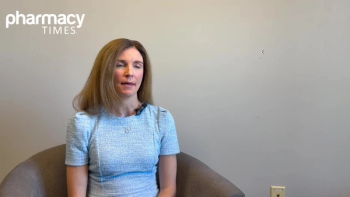
Interviews

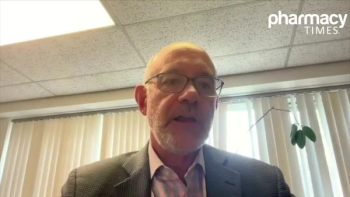
Real-world data from nearly 1.5 million administrations of intranasal esketamine (Spravato) show that its safety profile—including risks of sedation, blood pressure changes, and dissociation—remains consistent with clinical trial findings.

Pharmacists navigate rapid oncology drug therapy changes, enhancing patient care through education, biomarker insights, and tailored counseling strategies.
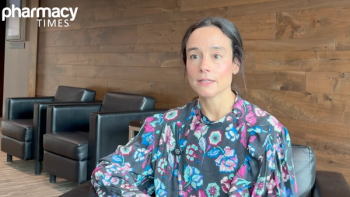
Expert shares the promising potential of linvoseltamab in treating high-risk smoldering multiple myeloma.

Expert shares the latest advancements in CAR T therapy and novel treatments for myeloma, addressing access challenges and promising new options.

Explore the impact of CDK4/6 inhibitors in HR+/HER2– breast cancer treatment and the essential role of oncology pharmacy practice.

Host Craig Beavers discusses the validity of meta-analyses and highlights analyses from European Society of Cardiology (ESC) 2025 with Bill Baker, PharmD, FCCP, FACC, FAHA.
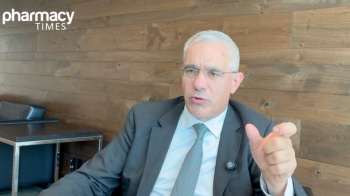
Expert discusses groundbreaking studies on the on-body injector for isatuximab, highlighting its efficacy, safety, and patient convenience.

Explore the evolving landscape of biological medicine, focusing on quality standards and innovations in cell and gene therapies for chronic diseases.
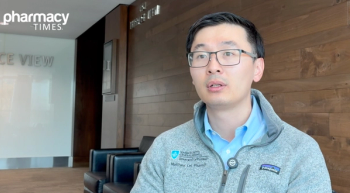
Pharmacists enhance patient care in multiple myeloma by focusing on infection prevention, CRS management, and optimizing outcomes with T-cell engagers post-CAR T.

Fast-melt tablets may help improve adherence by offering patients a convenient alternative to traditional pills, especially for those experiencing pill fatigue or managing multiple medications.
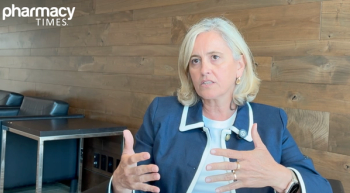
Costimulatory bispecific antibodies revolutionize multiple myeloma treatment, offering deeper responses and flexible sequencing strategies for patients.

IMS 2025: Daratumumab Plus Lenalidomide Improves Outcomes in Post-Transplant Maintenance for Myeloma
New findings reveal that combining daratumumab with lenalidomide significantly enhances MRD negativity and progression-free survival in multiple myeloma maintenance therapy.
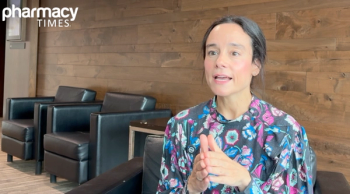
Experts discuss the potential of linvoseltamab in treating high-risk smoldering multiple myeloma, highlighting promising early trial results and response rates.

Expert highlights how taste-masking, dose, and particle size influence patient adherence and the clinical performance of fast-dissolving delivery systems.

Outpatient use of bispecifics and CAR T-cell therapies in multiple myeloma can expand access.
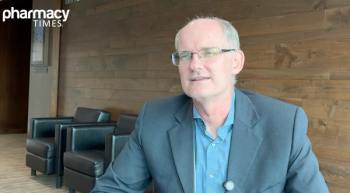
Teclistamab shows promising results in frontline multiple myeloma treatment, achieving high MRD negativity rates, but safety concerns remain.

Discover the benefits of fast melt tablets, designed for easy swallowing and quick disintegration, enhancing patient convenience and adherence.

An expert discusses the benefits of anti-CD38 quadruplet regimens for elderly multiple myeloma patients.

An expert discusses CAR T therapy's potential in treating relapsed multiple myeloma, highlighting long-term remissions and access challenges.
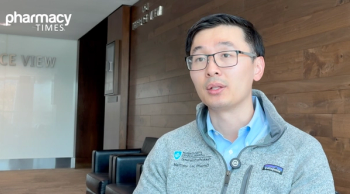
An expert discusses the promising results of elranatamab as a consolidative therapy for relapsed/refractory multiple myeloma, enhancing patient outcomes.

Crystal Hodge, PharmD, BCIDP, BCPS, discusses a 3-pronged approach—isolating, vaccinating, and educating—to help pharmacists manage respiratory virus season and routine immunizations like MMR.

Pharmacists play a crucial role in managing myelofibrosis, enhancing patient education, adherence, and financial navigation for optimal care.

Explore the evolving role of pharmacists in community care, enhancing patient relationships and adapting to new challenges in pharmacy practice.

Balancing Efficacy and Safety: Navigating Dose Adjustments and Therapy Optimization in Myelofibrosis
Jessica Lewis-Gonzalez, PharmD, BCOP, discusses the management of hematologic and non-hematologic toxicities in cancer patients, emphasizing the importance of proactive monitoring and collaboration between clinicians and pharmacists.

Michael Fifer, MD, discusses the Maple HCM study, which compared the cardiac myosin inhibitor Aficamten and the beta blocker Metoprolol in patients with obstructive hypertrophic cardiomyopathy (HCM).

Crystal Hodge, PharmD, BCIDP, BCPS, emphasizes that declining vaccination rates below the 95% herd immunity threshold have fueled recent measles outbreaks, underscoring the urgent need for pharmacist-led vaccination advocacy.

Legislative efforts aim to improve oncology medication access, addressing transportation barriers and advocating for mail delivery from cancer clinics.

E. Camille Vaughan, MD, MS, highlights how pharmacists can build patient trust, encourage vaccination, and use simple strategies to spark conversations with hesitant individuals.

Joshua K. Sabari, MD, highlights pharmacists’ roles in coordinating access, financial assistance, and early adverse effect management for patients starting zongertinib (Hernexeos).
